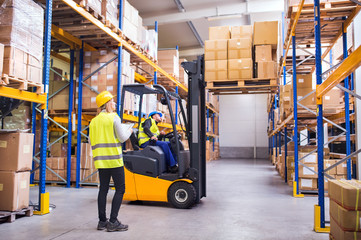The Growing Market for Retractable Forklifts: Manufacturer Insights
The Growing Market for Retractable Forklifts: Manufacturer Insights
Blog Article

The logistics and warehousing industries are constantly evolving, and one of the most significant trends is the rise of retractable forklifts. These innovative machines are designed for efficiency and adaptability, making them an attractive option for many businesses looking to maximize space and optimize their operations. As storage needs become more complex, forklift manufacturers are responding with advanced designs that cater to the growing demand for multifunctional equipment.
Electric Forklift Suppliers
In this landscape, companies that specialize in manufacturing forklifts are focusing on creating solutions that not only meet industry standards but also anticipate future needs. The retractable forklift, with its ability to maneuver in tight spaces while handling heavy loads, presents a compelling case for businesses seeking to improve their operational efficiency. Understanding the insights from these manufacturers can provide a clearer picture of market trends and innovations that are shaping the future of material handling.
Market Trends in Retractable Forklifts
The demand for retractable forklifts has been steadily increasing as businesses seek more efficient and space-saving solutions for their material handling needs. As urban logistics and warehouse operations evolve, companies are recognizing the importance of maximizing vertical storage. Retractable forklifts are designed to navigate narrow aisles and offer enhanced lifting capabilities, making them ideal for high-density storage environments. This trend is particularly significant in industries such as e-commerce, retail, and manufacturing, where quick and efficient inventory management is crucial.
With advancements in technology, manufacturers are focusing on integrating smart features into retractable forklifts. Innovations such as improved battery management systems, telematics, and automated controls are making these machines safer and more efficient. Manufacturers are also considering ergonomic designs that enhance operator comfort and productivity. As safety regulations evolve, the push for features that ensure compliance and reduce workplace accidents is becoming a priority, influencing the design and functionality of these forklifts.
Sustainability is another key trend shaping the market for retractable forklifts. As companies increasingly prioritize eco-friendly practices, manufacturers are developing electric and hybrid options to reduce carbon footprints. Furthermore, the focus on sustainable manufacturing practices is prompting manufacturers to adopt recyclable materials and energy-efficient production processes. This shift towards sustainability resonates well with businesses looking to enhance their corporate responsibility commitments while also benefiting from lower operational costs and government incentives.
Key Manufacturers and Their Innovations
Several key manufacturers are at the forefront of developing retractable forklifts, each contributing unique innovations to enhance efficiency and safety in the industry. One such leader is Toyota, whose advancements in electric retractable forklifts have set a new standard for energy efficiency and maneuverability. Their latest models feature advanced battery technology that provides longer run times and faster charging, allowing operators to maximize productivity during shifts.
Another prominent player is Hyster-Yale, known for its focus on ergonomic design and operator comfort. Their retractable forklifts come equipped with intuitive controls and adjustable seating, which help reduce operator fatigue during long operating hours. Additionally, Hyster-Yale has integrated smart technology that provides real-time data on performance and maintenance needs, making it easier for businesses to keep their equipment in top shape.
Finally, narrow aisle solutions by Crown Equipment Corporation showcase cutting-edge designs that cater specifically to space-constrained environments. Their retractable forklifts are engineered with advanced lifting technology that enables operators to reach higher shelves while maintaining stability. Crown's commitment to innovation is also illustrated in their use of automation and robotics in some of their recent models, setting them apart in a competitive market.
Challenges and Opportunities in the Industry
The forklift manufacturing industry faces several challenges that can impact production and profitability. One of the primary challenges is the increasing demand for sustainable and environmentally friendly solutions. Manufacturers are under pressure to reduce emissions and improve energy efficiency, which requires significant investment in new technologies and materials. Adapting to these changing market expectations while maintaining cost-effectiveness is a delicate balancing act for many companies.
On the other hand, the shift towards automation and advanced technology presents substantial opportunities for forklift manufacturers. The integration of smart technologies, such as IoT and AI, is transforming how forklifts operate and are maintained. Manufacturers that embrace these innovations can offer enhanced features, such as predictive maintenance and increased operational efficiency, attracting customers looking for cutting-edge solutions.
Moreover, the rise of e-commerce and the need for efficient logistics solutions create a growing market for retractable forklifts. As businesses expand their warehouses and distribution centers, the demand for versatile and space-saving lifting equipment increases. Manufacturers who can develop innovative retractable designs that meet these specific needs are well-positioned to capitalize on this trend, driving growth and securing their place in a competitive market.
Report this page